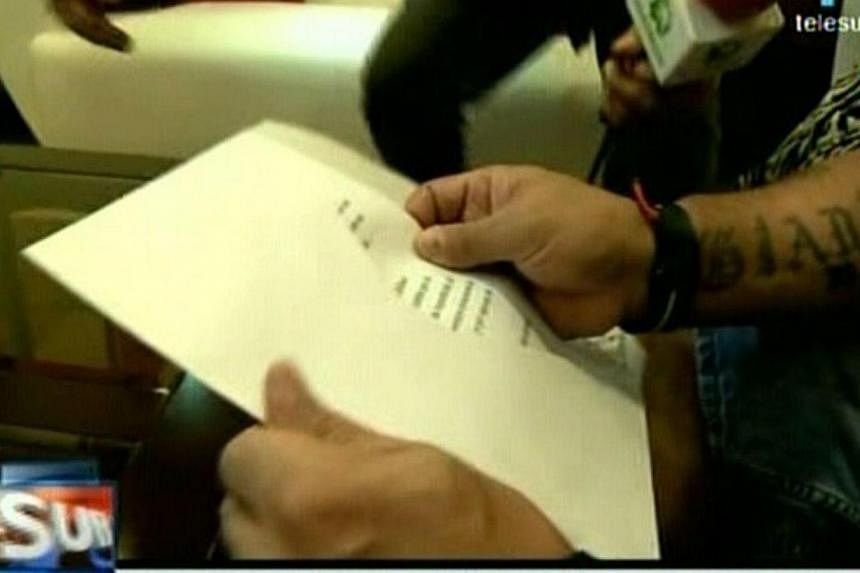HAVANA (AFP/Reuters) - Former Cuban president Fidel Castro does not "trust the US, nor have I spoken with them", the revolutionary icon, 88, said in a letter attributed to him and read out on Monday on state television.
However, Mr Castro appeared to lend his support to Cuba-US talks in the statement, which addressed his long-time adversary for the first time since Cuba and the US announced on Dec 17 that they would restore diplomatic ties.
"That does not represent - far from it - a rejection of peacefully settling conflicts," said the letter, a week after communist Cuba and the United States held landmark talks in Havana as they attempt to normalise ties.
"Any peaceful or negotiated solution to the problems between the United States and the peoples or any people of Latin America that doesn't imply force or the use of force should be treated in accordance with international norms and principles," he said in the statement. "We will always defend cooperation and friendship with all the peoples of the world, among them our political adversaries."
"Cuba's president has taken steps within his range of authority and the powers granted him by the National Assembly, and the Communist Party of Cuba," the letter attributed to Mr Fidel Castro added.
US President Barack Obama and Cuban President Raul Castro announced on Dec 17 that the Cold War rivals would work to normalize relations that broke off in 1961.
Pope Francis played a central role in mediating the secret negotiations that led to the December announcement.
In Washington, some Cuban-American lawmakers have criticised Mr Obama, saying the administration had given up too much without securing human rights commitments.
Yet what many observers found most stunning in so much change is that the leader of Cuba's 1959 revolution - a lawyer by training famous for speaking for hours in excruciating detail - had yet to publicly comment about the detente that his brother Raul, 83, has engaged with his old enemy.
Mr Obama has called on Congress to lift the US embargo on Havana, and used executive powers to ease some travel and trade restrictions. He has also given the State Department six months to review whether Cuba should remain on the terror list.
Mr Fidel Castro stepped aside in 2006 during a health crisis. Cuba is the Americas' only one-party Communist-ruled country.
Many analysts expect that Cuba's president would not have set out on this diplomatic route without his brother's approval and support. That makes it stranger still that Mr Fidel Castro had not spoken about Havana's change in course.
That led to speculation on the health of Mr Fidel Castro - including rumors he was dying or dead earlier this month. Then his long-time friend footballer Diego Maradona announced two weeks ago that he had received a letter from Mr Fidel Castro as well.
The letter did not address swirling rumors of his demise, which have cropped up often since Fidel Castro first took seriously ill in 2006.
With only official state media offering Cuba's 11 million people information, word of mouth can be an influential factor in the economically distressed country's everyday life.
The Cuban authorities have seemed keen to tamp down on the rumours on the streets, which seem to have been deflated by the Maradona letter. Its contents have not been released.
Mr Fidel Castro stepped aside in 2006 during a health crisis. Mr Raul Castro, the longtime armed forces chief, took his brother's place at Cuba's helm.
The last time Mr Fidel Castro was seen in public was Jan 8, 2014, at an event for an artist friend Alexis Leyva, who is nicknamed Kcho.

